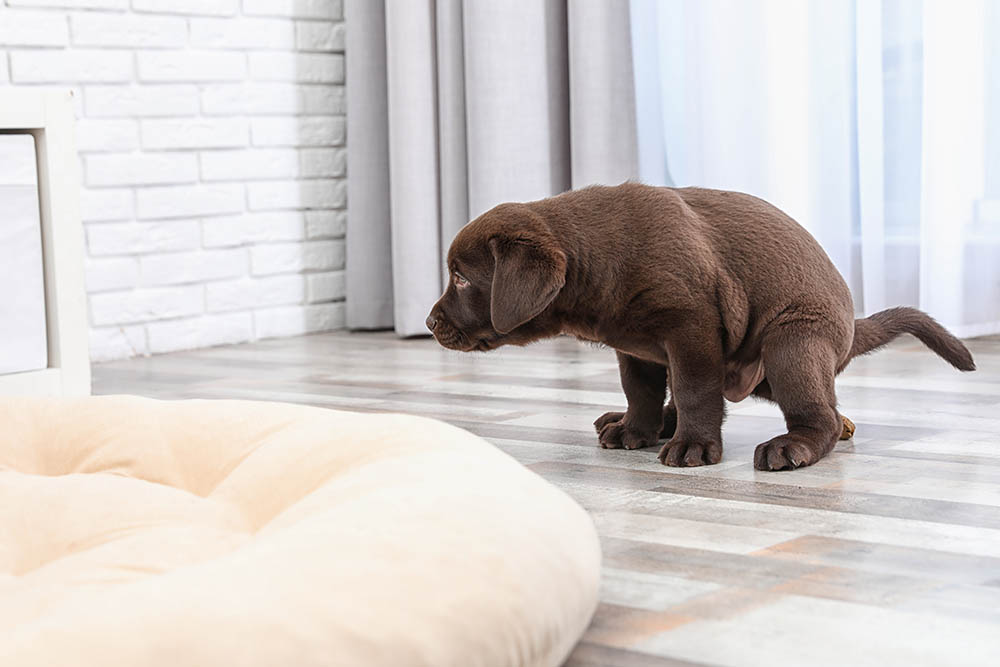Why Has My Dog Suddenly Started Stealing Food? 3 Possible Reasons
By Ashley Bates
Updated on
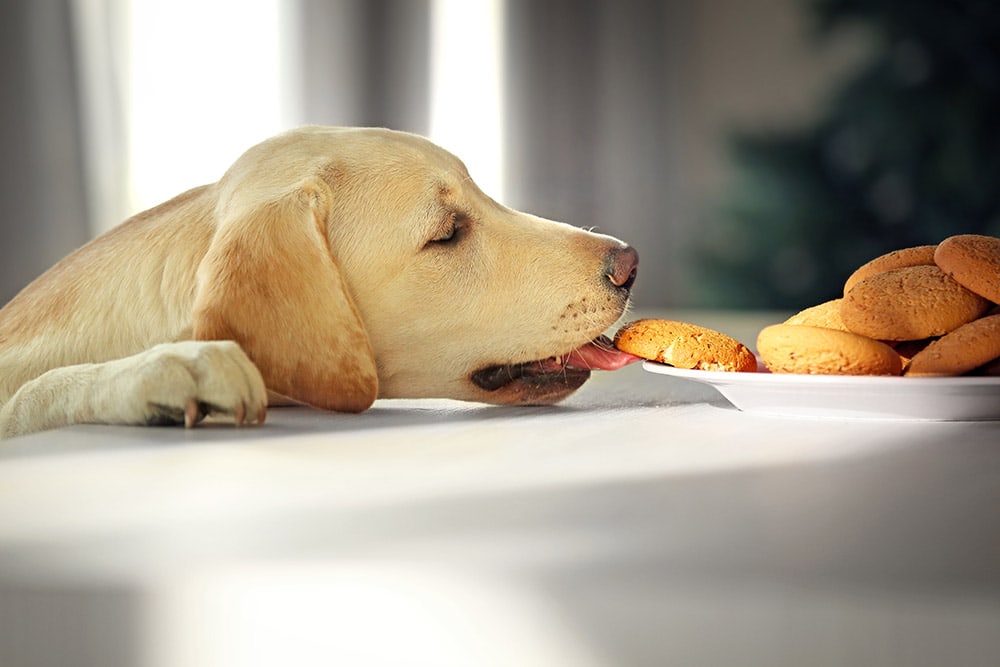
When we go through the stages with our dogs, we teach them step-by-step, learning good behavior, listening to commands, and other demands. So once our dogs have mastered something like not stealing food from plates, you probably think you’ve passed the threshold.
However, if your obedient dog starts stealing food, you’re probably looking for a solution. Luckily, we have some answers. Remember that these are strictly potentials, and any real behavioral concerns should be discussed with your veterinarian.
Why Do Dogs Steal Food?
Dogs stealing your food can be a frustrating behavior to deal with in the home. It seems like every time you turn around, they’re swiping something from your dinner plate or fast food bag. As frustrating as it might be to deal with the issue, it is perfectly natural and should never be harshly punished.
In the wild, dogs scavenge for food because it is sparse and hard to come by. This is a naturally ingrained part of your dog’s genetic makeup. These instincts might have dulled down over time through domestication, but they can never disappear completely.
So, even though it might be a challenging thing to deal with in the home, there are ways you can prevent it from happening that keeps your dog safe and healthy and your plate paw-free.
The 3 Reasons Why Your Dog Has Suddenly Started Stealing Food
1. Instinctual Behavior
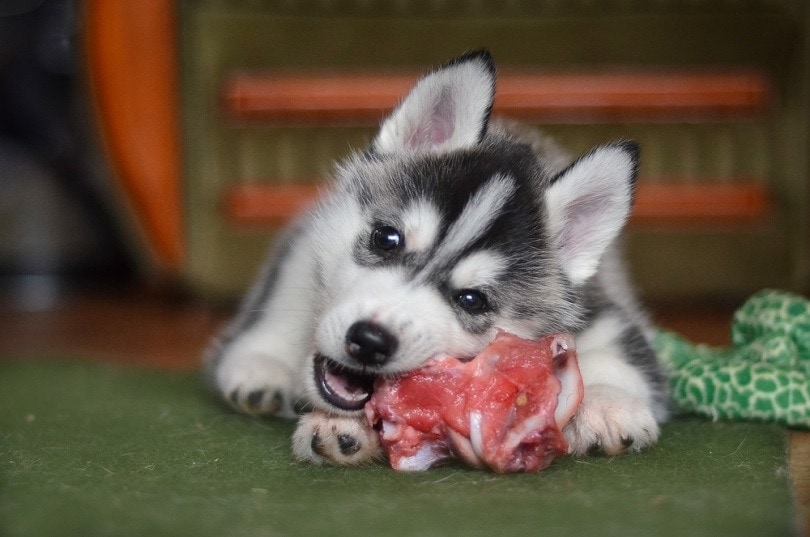
We must understand that our canines have natural impulses that are incredibly hard to control. One of these impulse control issues lies with food. It is a natural part of your dog’s existence to want to snatch or claim food as they would in the wild.
No matter how domesticated they are, all dogs would love to partake in a hamburger that you put down for a moment. You can absolutely train some dogs to harness impulse control and listen to vocal commands. However, some dogs have less ability to achieve this.
2. Hunger
If you have recently switched dog food or cut back on your dog’s daily portions, it could have a rippling effect on their daily diet. They might be a little hungrier than usual, so they are a bit more tempted to take the chance of stealing something from your plate.
If this is the case, try to get them adjusted for the first several weeks to see if their behavior subsides. Make sure no food is left within their reach during this time. Once their bodies grow accustomed to only getting the portions of food they’re being given, their metabolism should adjust accordingly, and they should be less hungry.
However, if you do not mean to reduce your dog’s food intake in any way, you might want to check portions to ensure they’re getting the appropriate nutrients they need to thrive every day.
- Optimize the benefits of your dog’s diet with our calorie calculator here.
3. Being Fed Human Food
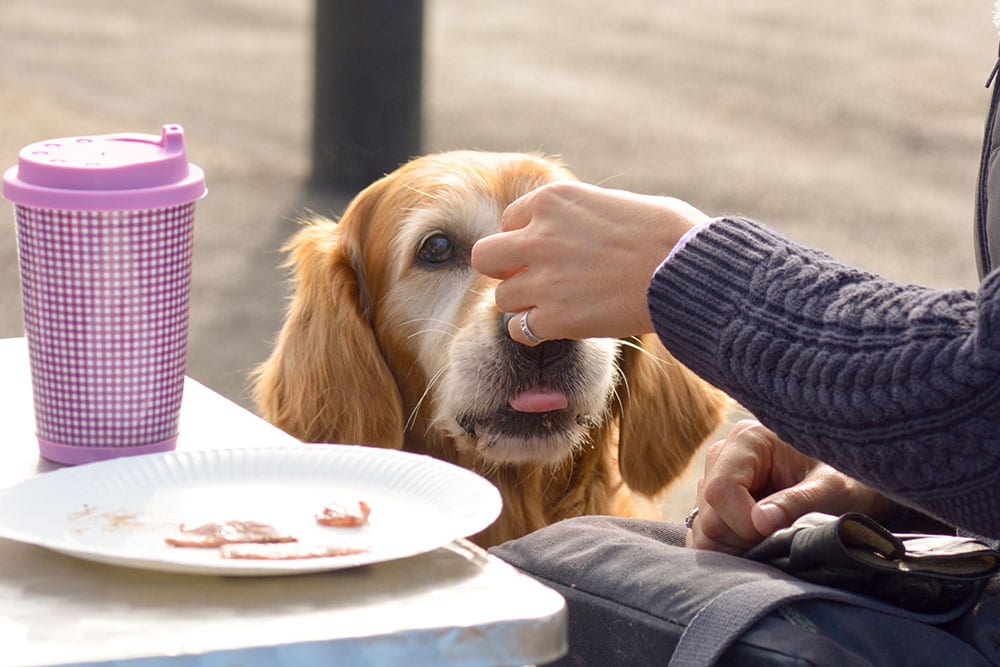
If you have people in the home feeding your dog from their plate, it could cause bad behavior to start unknowingly. When you feed your dog off your plate, you show them that whatever is on your plate might be theirs too.
They might be confusing you by offering them food with them being able to take it by free will. Therefore, it is always recommended that you refrain from giving your dog any table scraps to avoid confusion and promote the best health for your pet.
There’s also the chance that they will consume ingredients that are safe for us to consume but are toxic to dogs, putting their life at risk. Not only are table scraps not good for your dog, but they can also lead to obesity and other health issues that can shorten their lifespan and lead to costly vet bills.
Your best bet here is to entirely refrain from giving your dog anything, no matter how adorable they are when they’re begging. It is best for the health and well-being of your dog, and it will help you avoid agitating situations like having them steal food.
How to Train Your Dog Not to Steal Food
Typically, it’s not that difficult to teach your dog to stop stealing food, though it can vary with personality. As we discussed earlier in the article, some dogs are more food driven, which can cause a lack of impulse control. And we all know the face of our dogs when they just can’t resist.
You can often teach impulse control by practicing patience and slowly veering your dog away from your plate. It might surprise you that how you train your dog to not steal your food actually rewards them too.
Rather than using harsh punishments, it’s a much better thing to encourage the behavior in its own place. That might not sound very clear at first, but let us explain. You can offer your dog a treat when you are cooking or sitting down to eat.
You only have to get your dog to lie down and stay where you command them to be. As long as they obey your command, you’re welcome to reward them with a treat. If you don’t want them directly beside you, you can always have a designated treat area where you distribute the food. When your dog notices that you are cooking or eating, they will likely go to this area, as they know they will be rewarded for doing so.
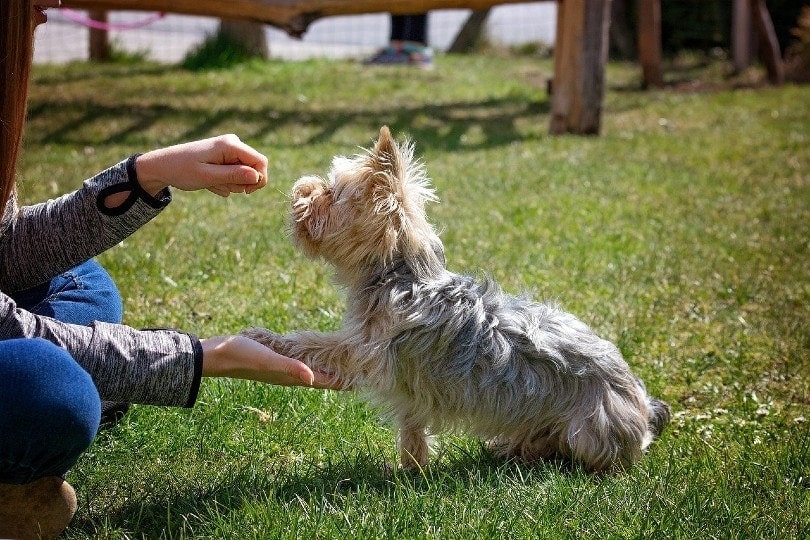
Separating During Meals
If all else fails, you can always put your dog in a separate area while you eat. This doesn’t have to be a punishment. It can simply be cutting off access to your dining room or eating area so your dog cannot be close during dinner time.
The bottom line is that eating food is a natural impulse in your dog. There’s nothing wrong with the desire to eat. Teaching them to control this properly can be highly challenging, and no dog is ever trained fully out of it. If you lay food down, your dog will find out sooner or later, depending on whose eyes are watching.
Encourage good behavior. When you are whipping up a delicious meal, your dog’s senses will go just as wild as your family’s. If they can smell the deliciousness, they will want to partake. And if they think they are family members, they believe you should share.
So, some dogs need to be in their own area for meals—and you need to be in yours.
Conclusion
Stealing food is not a real behavioral concern. Yes, it is inconvenient and annoying. However, imagine being part of the family when your entire group sits down for dinner, and excludes you. You’re going to want whatever they have on their plate too.
Teaching proper behavior and obedience is key to your dog not stealing your food, as it creates a level of trust and respect between you. Plus, it would be best if you didn’t punish your dog for wanting to eat food. Instead, use rewards in their own space so they know the difference between your food and theirs.
If you have any questions about behavioral concerns, you can always consult with a professional to deal with your particular dog’s case.
Featured Image Credit: Africa Studio, Shutterstock



